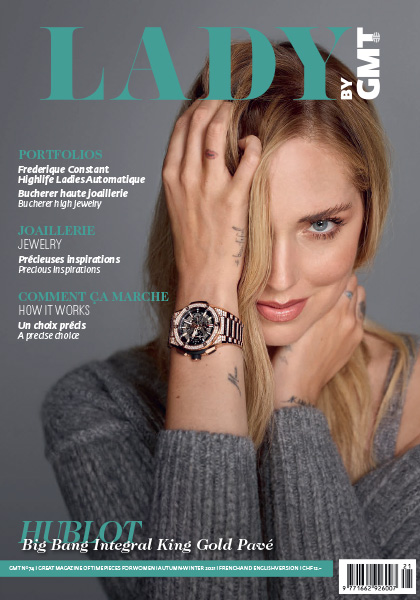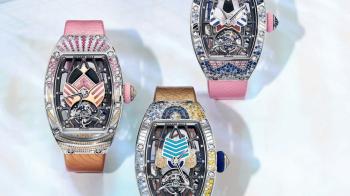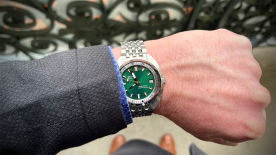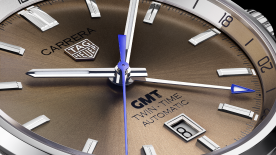Let’s face it. The modern woman is a busy woman. Men say they’re busy, but they don’t know what they’re talking about – as a group, if you say you don’t know how to multi-task, don’t come and tell me about being busy. Leading the lives that we lead, it’s important that we have a watch that keeps us on time. But we have our phones, I hear you say. Listen, when I am on the go, scanning the streets for an available taxi, glancing through my notes before a meeting and trying to keep an umbrella over my head in the miserable Geneva rain, the last thing I need to do is fish around in my bag for my phone. First of all, I’d need a third hand for that. Secondly, I’m not taking the risk of pulling it out (while also juggling a bag, notebook, laptop and umbrella) and dropping it in the street. At the very least, I don’t want to get sidetracked by email and text message alerts. I want to look at my watch and know what time it is. Period. Every woman reading this understands what I mean.
Depending on how on time you need your life to be, here are the four levels of precision available to you in a wristwatch. Choose wisely according to your needs and desires (even if our desires rarely lead us towards wise choices).

Chronometer-certified watches
These are mechanical timepieces that have been through tests certifying that they have a particular level of precision performance. The main certifying body for chronometers is the Official Swiss Chronometer Testing Institute (COSC). Over 10 days of testing, COSC-certified movements are permitted to lose up to 4 seconds or gain up to 6 seconds (-4/+6) per day. There are 86,400 seconds in a day, so a watch movement that measures 86,395 seconds in a day (which means it has lost 5 seconds) will not receive COSC certification. Omega offers the Master Chronometer certification, which is a COSC certificate topped up with additional testing from the Swiss Federal Institute of Metrology (METAS), guaranteeing precision between -0/+5 seconds per day. Rolex applies the Superlative Chronometer certification, which is also based on COSC certification, with additional internal testing which guarantees precision ranging between -2/+2 seconds per day. This is why chronometer certification is considered the gold standard of precision for modern mechanical timepieces.
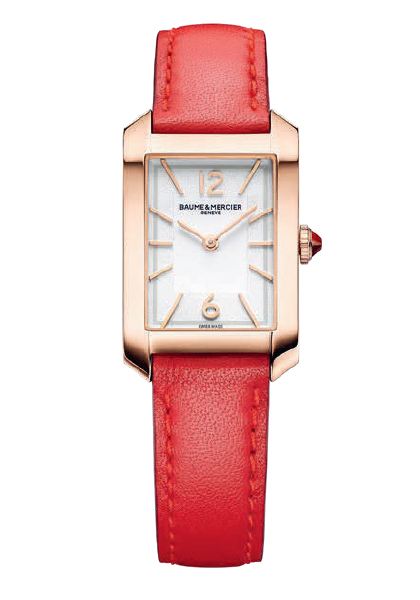
Mechanically augmented watches
These are watches with built-in mechanical systems that theoretically allow them to offer greater timekeeping precision. Such systems can include high-speed escapements (for example, any Zenith watch with an El Primero movement), tourbillons (such as the Richard Mille RM 71-02 Automatic Tourbillon Talisman) or a constant-force mechanism (like the fusée-and-chain system in the Ferdinand Berthoud FB1). Unless these watches come with actual chronometer certification, it isn’t really possible to tell if they keep time any better than any other watch out there. In theory, they do. In practice, they might not. You would buy one and wear one, not because you’re worried about losing more than four seconds a day, but because you admire the skill and artistry present in these timepieces.
All other mechanical watches
Just because a watch doesn’t come with fancy mechanisms or a timing certificate doesn’t mean it’s going to keep time poorly. Lots of watch companies have strict internal standards in accordance with their brand reputation – they have an image to uphold – and their watches can perform as well as any certified chronometer out there. There is Jaeger-LeCoultre, with their famed 1,000 Hour Control test, which puts watches through a stringent round of quality checks to ensure timekeeping precision, among other performance factors. Patek Philippe signs their watches with the Patek Philippe Seal, which maintains certain aesthetic standards as well as precision timekeeping between -3/+2 seconds per day, which is a smaller margin of error than COSC levels.
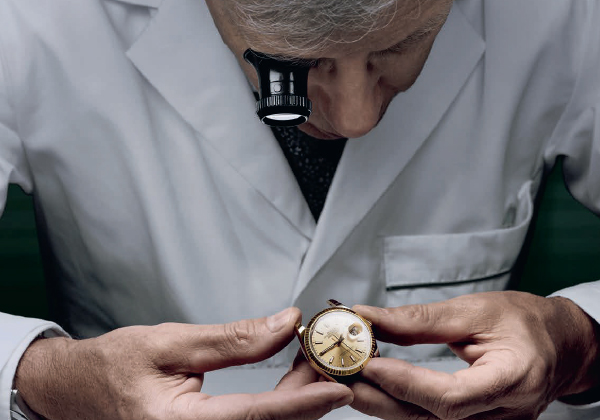
Quartz watches
If you value precision above all else, choose a quartz watch and don’t let anyone tell you any different. In a mechanical watch, the highest frequency you can easily find in boutiques is 5Hz. A quartz watch beats at 32,768Hz, which means there’s simply no comparison in terms of chronometric performance. Today, a quartz watch produced by an haute horlogerie brand is as beautiful, well-made and highly decorated as any of its mechanical brethren. Sure, the mechanical heritage factor is lacking, but if that’s not what you’re looking for in a watch, why should that bother you? Buy what you need – buy what you want!
As a World Tempus reader, we are delighted to offer you the latest digital version of this GMT magazine that you can download here. Happy reading!
